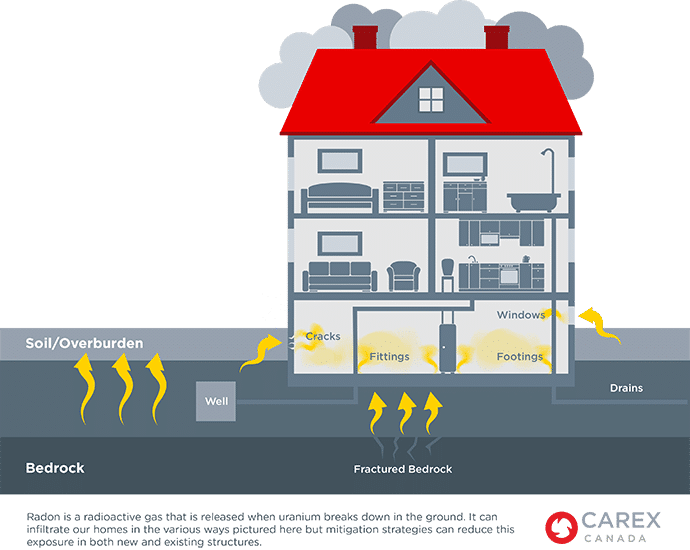
Why should I care about radon?
Exposure to high levels of radon gas is the second leading cause of lung cancer after smoking. According to evictradon.ca, the Canadian prairies have some of the most radon-generating soils on earth. For example, a recent study - http://cmajopen.ca/content/5/1/E255.long - showed that 47% of homes in Southern Alberta had elevated radon levels of 100 Bq/m3 or higher, and 12% had levels of 200 Bq/m3 or higher (which must be remediated).What is radon gas?
Radon is an odourless, invisible cancer-causing gas that comes from the ground and can accumulate in your home, particularly in the basement. High levels of radon in your home pose a serious health risk to occupants. The only way to know if you have a high level of radon gas in your home is to have your home tested - you can buy a kit at a home improvement store, order one online or have it done by a professional. The test kit should stay in your home for at least 90 days before it's sent to a lab for testing (some test kits have a speedier time frame, but they are considered less accurate).
Image source: https://www.carexcanada.ca/profile/radon/

1 Response to Radon in Alberta: What is Radon Gas and Why Should I Care?
Everyone should have their home tested for their own health and safety. If you’re selling your home, and you receive test results indicating the radon level is 200 Becquerel or higher, you must disclose that to potential buyers unless you install a radon mitigation device before listing and a 90-day long-term test indicates the new radon level is below 200 Becquerel. If the test results are less than 200 Becquerel, you can share the low test results with potential buyers as a selling feature.
Posted by sara on Thursday, November 12th, 2020 at 3:28amhttps://youmovise.com/lilit-hovhannisyan/
https://youmovise.com/gor-yepremyan/
https://youmovise.com/arabo-ispiryan/
s
Leave A Comment